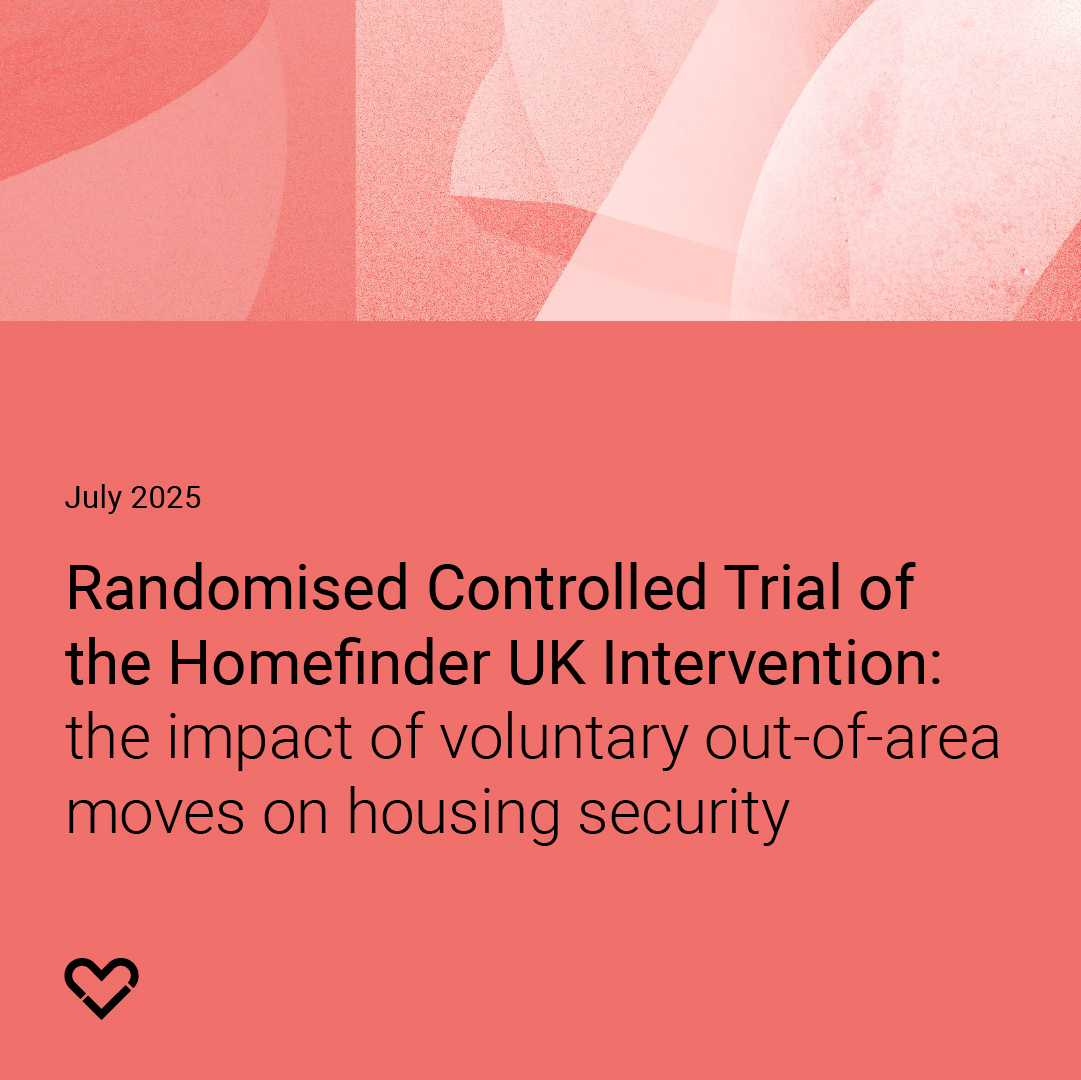What Works Evidence Notes: Domestic Abuse and Homelessness
Outline of the Study
This evidence note provides an overview of research on the intersection between domestic abuse and homelessness, focusing on studies published in the past ten years. The study examines evidence-based interventions and promising practices that seek to prevent and address homelessness among domestic abuse survivors in the UK, focusing on women survivors and explores how research, evaluation, and policy can improve outcomes for this group.
Findings in Brief
- Recent data indicates that domestic abuse accounts for 25 - 33% of homelessness presentations to local authorities across England, Scotland, Wales, and Northern Ireland
- There is a lack of robust evidence on effective interventions for preventing and addressing homelessness among domestic abuse survivors, particularly in the UK context
- Critical Time Interventions (CTI) show promise in reducing unmet care needs and PTSD symptoms for survivors leaving women's shelters, reducing the likelihood of unmet care needs compared to groups not receiving these interventions
- There is evidence that Domestic Violence Housing First (DVHF) improves housing outcomes at 6-month, 12-month, and 2-year follow-ups. DVHF is also linked to modest improvements in reducing repeat abuse, depression, anxiety, and PTSD over a two-year period
- Most evaluated housing services and programmes are gender-blind and therefore fail to address the unique needs of women experiencing abuse and homelessness
- In 2022/23, 19% more households referred to safe accommodation services were unable to access this service than in 2021/22. This was primarily due to capacity constraints
- Routine screening for domestic abuse in healthcare settings more than doubled identification rates of domestic abuse, compared to selective screening.
Recommendations in brief:
- Interventions should be flexible in both kind and degree, with survivors having agency over how funds are spent and the amount of funding they need
- Where possible, multi-agency approaches should be provided, as domestic abuse is not an issue housing providers can address alone
- More research is needed on Multi-Agency Risk Assessment Conferences (MARAC) and other coordinated responses, to understand key success factors
- Use learning from Domestic Violence Housing First models, including flexible financial assistance and survivor-led decision making on housing moves, to inform future interventions
- Carry out additional evaluation routine screening programmes and perpetrator-oriented interventions, to assess their value in terms of medium to long-term impacts on housing outcomes.
No items found.





.jpg)

